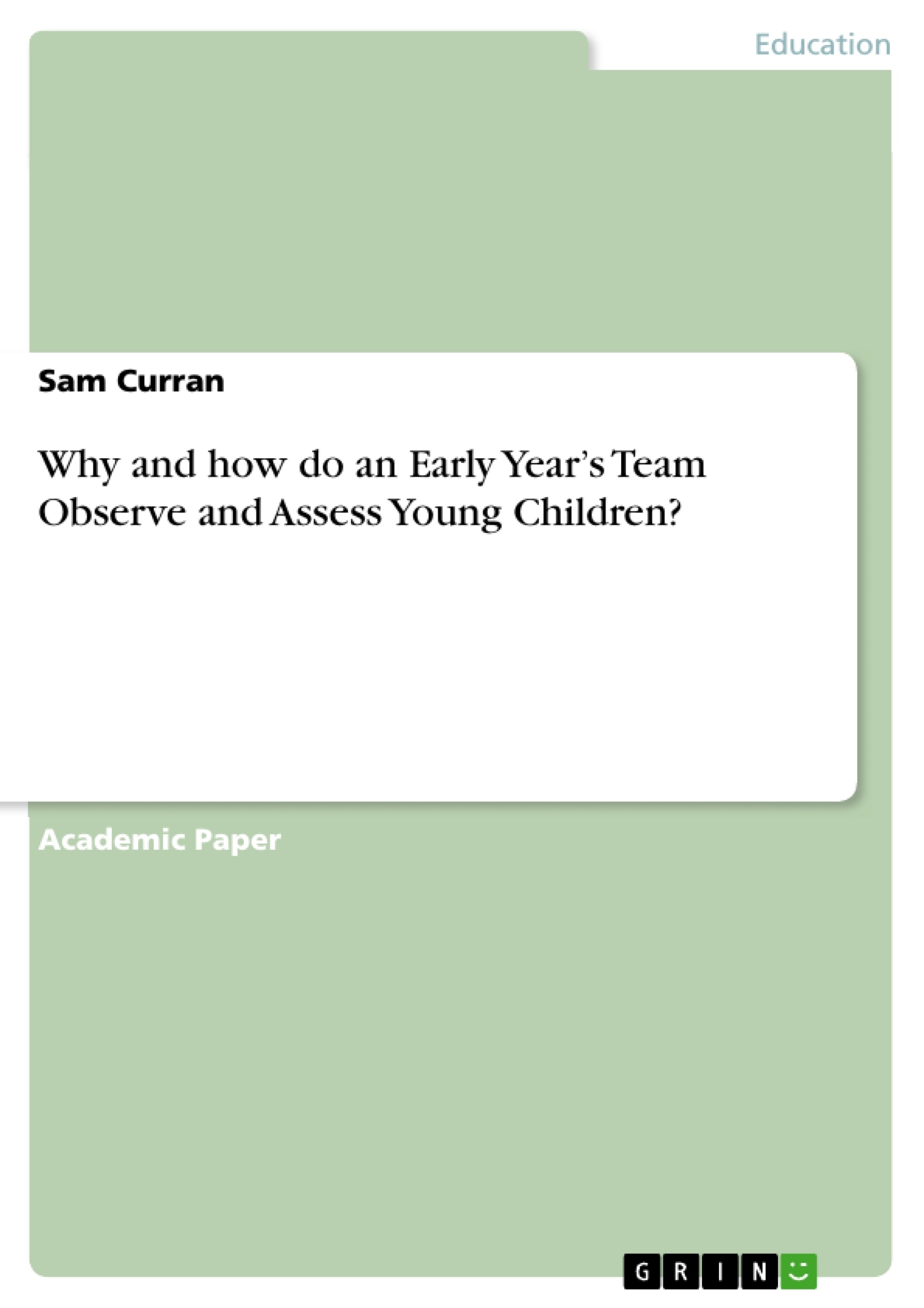When conceptualisations of research and academia appear in literature, academia and education are synonymous with each other. Once this connection has been made, the notion of the study of children inevitably manifests. Children are a valuable educational resource - they are the future of the world, in economic and personal terms. This is a viewpoint (or paradigm depending upon interpretation and application of the previously mentioned sentiment) that gives rise to the argument that monitoring children’s development strategically in the Early Years Foundation Stage (EYFS) would be appropriate. This is presumably when their development is influenced the most. Although applied originally to the field of child language acquisition, Lenneberg (1967) noted that there was often a period of learning for children where they absorbed facts and content at their optimum and once this period had elapsed, they were still able to learn, but not as productively as they were in the aforementioned ‘critical period’. Such a line of reasoning could be potentially be transferable and applied to the development of children: once they have surpassed the EYFS, their personality, learning habits and other such traits may be fixed. However, the dominant view in educational psychology at present is that personality is not a fixed entity. Instead, it is something which is continually changing over time, being affected by heritability, environmental interactions (this is expounded upon at a later section of this assignment) and the schema of the child themselves (Roberts et al., 2010). Regardless of the debate over whether the traits of the child are fixed or are continually changing, some intervention (and assessment) by Early Years Practitioners is needed to observe the child and potentially project (or forecast) the characteristics of the child in order to inform provision for them.
Inhaltsverzeichnis (Table of Contents)
- Introduction
- Why Observe Children in Particular?
- Nature of the EYFS Curriculum
- Methods of Observation/Assessment
- Conclusion
Zielsetzung und Themenschwerpunkte (Objectives and Key Themes)
This assignment explores the rationale behind observation and assessment practices implemented by Early Years Practitioners (EYPs) in the Early Years Foundation Stage (EYFS). It aims to justify the need for such practices and to provide a comprehensive overview of the methods employed.
- The importance of observing and assessing young children's development in the EYFS
- The nature and purpose of the EYFS curriculum
- The role of observation and assessment in supporting children's transitions to primary school
- Different methods of observation and assessment used in early years settings
- The impact of the learning environment on children's development
Zusammenfassung der Kapitel (Chapter Summaries)
- Introduction: The introduction establishes the connection between academic research and the study of children, highlighting the significance of monitoring children's development in the EYFS. It presents the concept of a "critical period" in learning, drawing on Lenneberg's (1967) theory of child language acquisition, and discusses the ongoing debate regarding fixed versus evolving personality traits in children.
- Why Observe Children in Particular?: This chapter delves into the rationale behind observing children in the EYFS, emphasizing the complexity and heterogeneity of their development. It explores the theoretical perspectives of Piaget (1954) and Bruner (1976), who underscore the importance of understanding children's developmental stages and the influence of their environment, particularly social interactions, on their learning.
- Nature of the EYFS Curriculum: This chapter examines the recent curriculum reforms in the EYFS, which emphasize a holistic approach to education, recognizing the multifaceted nature of children's development. It highlights the shift in educational attitudes towards tracking, recording, and appraising children's progress at various levels. The chapter also discusses the significance of preparing children for their transition to primary school through observations and assessments.
- Methods of Observation/Assessment: This chapter delves into the various methods of observation and assessment used in early years settings, exploring the concept of "learning dispositions" and the influence of the environment on children's learning styles. It discusses the "learning disposition" grid (Carr and Claxton, 2002) and the growing popularity of "learning stories" as a more comprehensive and flexible approach to assessing children's development.
Schlüsselwörter (Keywords)
The primary keywords and focus topics of this assignment include: Early Years Foundation Stage (EYFS), observation, assessment, Early Years Practitioners (EYPs), learning dispositions, holistic pedagogy, curriculum reforms, learning environment, learning stories, transition to primary school, and child development.
Frequently Asked Questions
Why is observation crucial in the Early Years Foundation Stage (EYFS)?
Observation allows practitioners to monitor complex development, understand individual learning styles, and inform future provision for the child.
What is the "critical period" in child development?
Based on Lenneberg's theory, it is a period where children absorb knowledge at their optimum; after this, learning may be less productive.
What are "learning stories" in early years assessment?
Learning stories are a narrative-based, flexible approach to documenting a child's progress and learning dispositions in a holistic way.
How did Piaget and Bruner influence early years observation?
They emphasized that understanding a child's developmental stage and their social environment is vital for effective teaching and support.
How does the EYFS prepare children for primary school?
Through systematic tracking and appraisal of progress, ensuring that children have the necessary traits and skills for a smooth transition.
- Arbeit zitieren
- Secondary Mathematics Teaching Sam Curran (Autor:in), 2014, Why and how do an Early Year’s Team Observe and Assess Young Children?, München, GRIN Verlag, https://www.grin.com/document/447052



